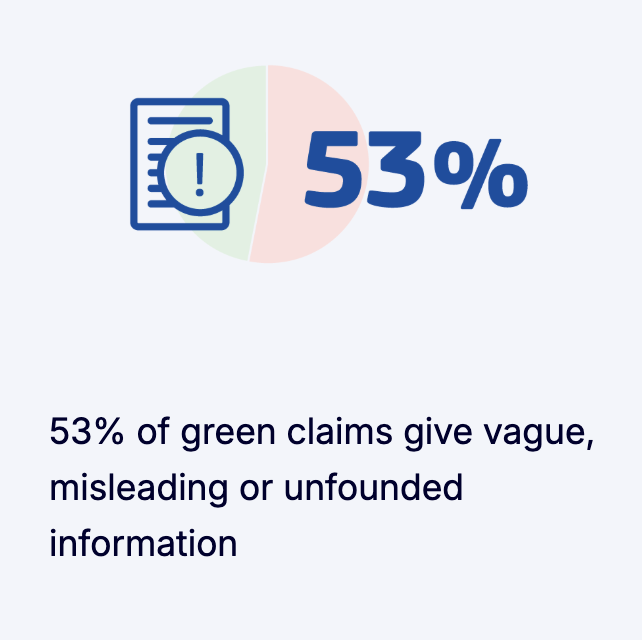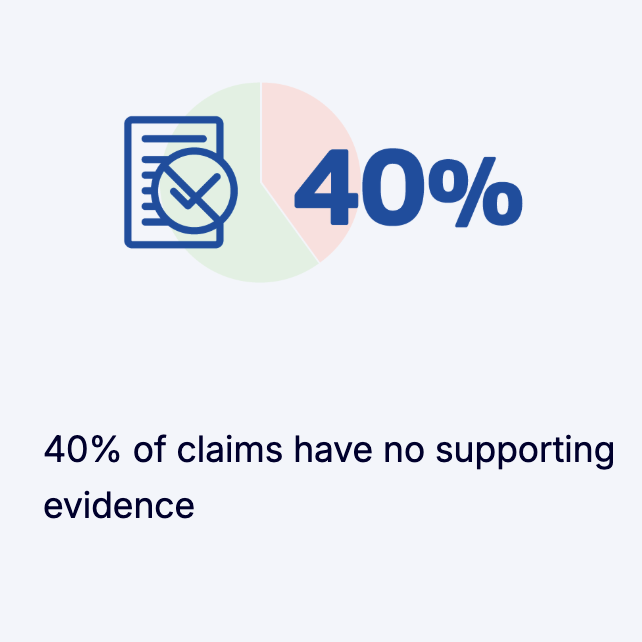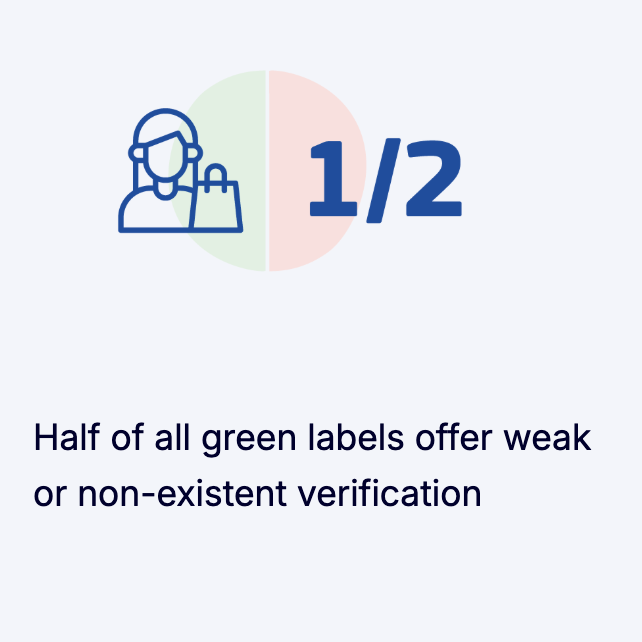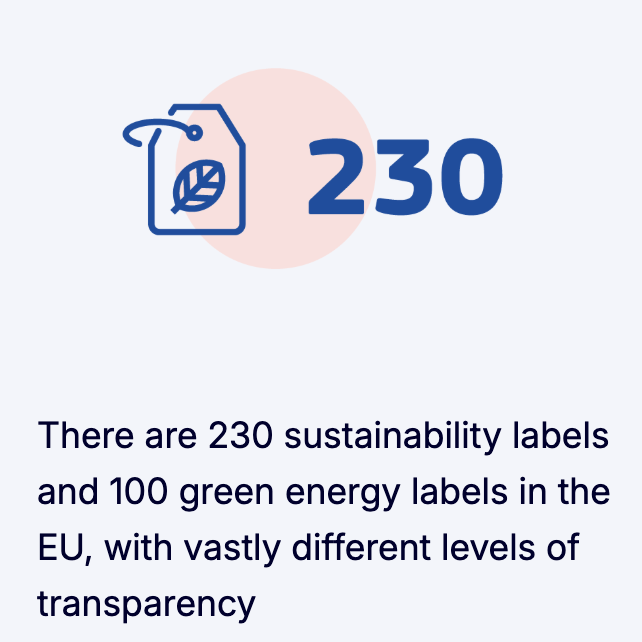Green lies, real consequences – greenwashing in the light of the law
21 July 2025 / Articles
In an era of growing environmental awareness among both consumers and businesses, terms such as greenwashing and green claims are increasingly appearing in discussions about sustainable development and responsible business. In this article, we explain exactly what greenwashing is, what risks are associated with the use of dishonest ‘green’ claims, and what legal regulations are in place in Poland and the European Union to counteract these practices. You will also learn how to avoid accusations of greenwashing and build a transparent, environmentally friendly brand image in line with applicable regulations.
What are greenwashing and green claims?
Greenwashing is an increasingly common marketing practice whereby companies create a false or misleading impression that their products or services are more environmentally friendly than they actually are.
In this way, companies take advantage of growing consumer awareness of environmental issues by creating a ‘green’ image without taking any real action to protect the environment. Such actions may bring companies short-term image and sales benefits, but in the long run they result in a serious loss of customer trust and real legal and financial consequences.
In the context of greenwashing, the term ‘green claims’ is increasingly being used to refer to marketing statements designed to convince consumers that a product or service has a positive impact on the environment. Green claims are becoming a popular tool for companies responding to market demands for sustainability and consumer expectations for transparency in environmental activities.
Unfortunately, research by the European Commission indicates that as many as 40% of such green claims are unsubstantiated or contain information that misleads consumers. This means that many of them are examples of greenwashing, which not only undermines consumer confidence but also distorts fair competition in the market.
In response to these abuses, the European Union is working intensively on the introduction of the Green Claims Directive. The new regulations, planned to come into force by the end of 2026, are intended to establish clear and uniform rules for the use of green claims in marketing communications. According to the draft, companies will be required to back up their environmental claims with specific and verifiable evidence, preferably confirmed by independent experts and verifiers. The aim of the directive is not only to protect consumers from being misled, but also to support companies that are genuinely implementing sustainable development policies. In addition, the regulations are intended to increase transparency in supply chains and reduce the risk of unfair practices in the area of ESG (Environmental, Social, Governance).
Source: Green Claims – EU Circular Economy
Examples of greenwashing – how does it work in practice?
Greenwashing takes many forms that can be difficult for the average consumer to detect. Below are some of the most common examples:
- Advertising products as ‘eco-friendly’, ‘biodegradable’ or “natural” without any evidence to support these claims.
- Claiming that a product is ‘100% natural’ even though it contains artificial additives or synthetic substances.
- Using non-existent, fictitious eco-certificates or symbols to suggest that a product is environmentally friendly, even though this is not actually the case.
- Claiming that a company is ‘climate neutral’ or ‘carbon neutral’ even though it does not take any effective measures to reduce greenhouse gas emissions in practice.
- Using images of animals, nature symbols or colours associated with ecology to give consumers the impression of environmental responsibility without actually backing up these claims.
Greenwashing – what consequences and penalties await companies?
Greenwashing carries serious risks, not only to a company’s image, but also legal and financial risks. Here are the key consequences that companies engaging in such practices may face:
- Financial penalties – in Poland, penalties for unfair marketing practices, including greenwashing, are high. According to the Act on Counteracting Unfair Market Practices, the penalty can be as high as 10% of the company’s annual turnover. Such sanctions are intended to have a preventive and deterrent effect.
- Reputational damage – the biggest threat to companies accused of greenwashing is the loss of customer trust. In the age of social media and growing consumer environmental awareness, information about unfair practices spreads quickly. The result is a rapid decline in customer loyalty and a reduction in brand value.
- Loss of access to ESG financing – banks, investment funds and other investors are increasingly verifying companies’ compliance with the EU taxonomy and sustainability standards. Detection of greenwashing may result in the withdrawal of financing or the loss of preferential lending terms, including access to so-called green bonds.
- Lower ESG rating – agencies assessing corporate sustainability are lowering the ratings of companies involved in greenwashing. Such a negative rating translates into a poorer perception of the company on the capital market and among investors.
- Green default risk – if funds from green financial instruments (e.g. bonds) are used contrary to the declared objectives, investors may demand the return of funds and compensation.
- Class action lawsuits and social organisation activities – violations related to greenwashing may result in court and administrative proceedings, as well as pressure from consumer and environmental organisations.
High-profile examples of greenwashing from the global and Polish markets
- The Volkswagen scandal – Dieselgate – one of the most famous cases of greenwashing, in which Volkswagen advertised its cars as environmentally friendly while installing software that manipulated emissions results. This resulted in penalties of approximately $34.7 billion (mainly in the US), numerous lawsuits, compensation payments and a drop in share value of around one third. This case made regulators aware of the serious consequences of greenwashing when treated as systemic fraud.
- Deutsche Bank and DWS – the German financial supervisory authority fined the asset management company DWS €25 million for misleading investors and misusing ‘green’ slogans that did not correspond to the company’s actual ESG activities.
- Polish example – BO Energy – at the end of 2022, the Office of Competition and Consumer Protection imposed a fine of over PLN 28 million on BO Energy (photovoltaic industry) a fine of over PLN 28 million for unfair practices, such as misleading promises of cooperation with the Ministry of Climate and offering allegedly ‘free’ energy audits. This was the highest consumer fine in Poland in 2022.
Legal regulations against greenwashing in Poland and the EU
In Poland and at the European Union level, there are a number of regulations aimed at eliminating greenwashing:
- Act on Counteracting Unfair Market Practices – prohibits misleading consumers in marketing communications, which also includes greenwashing. Companies that violate these regulations are subject to heavy financial penalties.
- Act on Combating Unfair Competition – protects against unfair practices in business activities that may mislead consumers, including in the area of environmental claims.
- CSRD (Corporate Sustainability Reporting Directive) – requires companies to report on their sustainability performance. These reports must be transparent, verifiable and reliable, which helps to verify the accuracy of green claims.
- Green Claims Directive – scheduled to be implemented by the end of 2026, the directive will introduce strict requirements for the use of green claims in marketing, imposing an obligation to prove their accuracy and ensure transparency of communication.
How to avoid accusations of greenwashing? Basic principles for companies
To avoid the risk of accusations of greenwashing, companies should follow a few key principles:
- Data reliability – all marketing communications should be based on verified, scientifically proven facts about the environmental impact of products and services.
- Precise terminology – avoid vague, unclear terms such as ‘eco’ or ‘environmentally friendly’ if they cannot be clearly proven. Environmental certificates and labels should be verifiable.
- Transparency – the company should disclose information about its environmental activities, certifications, environmental audit results and the stages of implementation of its sustainability policies.
- Continuous monitoring and updating of communication – marketing messages must be regularly reviewed and updated in line with the actual status of the company’s activities and legal requirements.
Legal support in the fight against greenwashing
Professional legal support is invaluable at every stage of planning and implementing a marketing strategy related to environmental claims. Our law firm can help you with:
- Analysing advertising messages for compliance with applicable regulations.
- Assessing the legal risk associated with the use of eco-friendly terms and symbols in the promotion of products and services.
- Preparing and implementing transparent environmental communication policies.
- Training marketing and PR teams on compliance with green claims regulations.
- Legal representation in disputes or inspections by authorities.
Honest and reliable environmental communication is not only a legal requirement, but also the foundation for building lasting trust with customers and business partners. Greenwashing is not only a reputational risk, but also a real financial and legal threat. Therefore, companies planning marketing activities using eco-friendly themes should ensure the transparency and authenticity of their message.
Contact us
If you would like to learn more about how to communicate effectively and safely about environmental issues while avoiding greenwashing, please contact our law firm. We will help you comply with applicable law and build a credible, sustainable brand image.
Need help with this topic?
Write to our expert
Articles in this category
MiCA does not cover DeFi. What does this mean for the crypto asset market in the EU?
MiCA does not cover DeFi. What does this mean for the crypto asset market in the EU?Liability for damage caused by autonomous vehicles – who is legally responsible?
Liability for damage caused by autonomous vehicles – who is legally responsible?Jacek Cieśliński in Puls Biznesu on the correct labelling of promotions
Jacek Cieśliński in Puls Biznesu on the correct labelling of promotionsEuropean Accessibility Act (EAA) – a comprehensive guide for businesses
European Accessibility Act (EAA) – a comprehensive guide for businessesMiCA in Poland – a compendium of knowledge about transition periods and deadlines in the draft law on the crypto-asset market
MiCA in Poland – a compendium of knowledge about transition periods and deadlines in the draft law on the crypto-asset market







